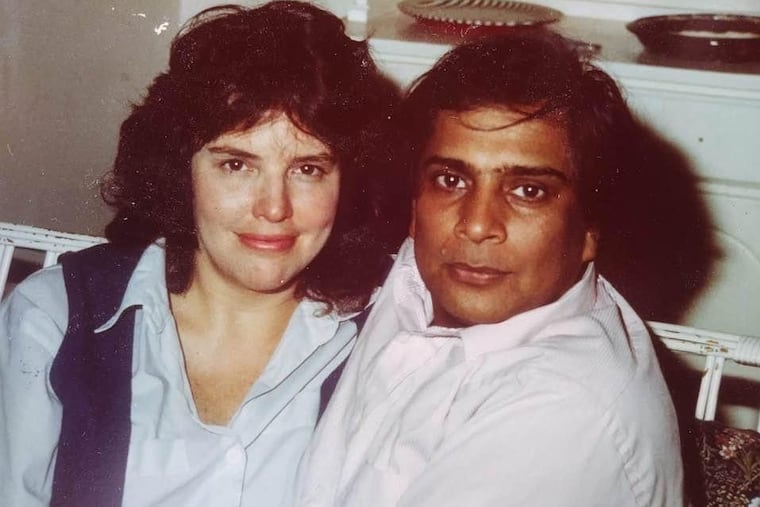Ashok Davar, architect, author, illustrator, and teacher, has died at 77
Born in India, he came to Philadelphia in the early 1960s, was a colleague of famed city planner Edmund Bacon, and wrote half a dozen popular children's books.

Ashok Davar, 77, of Philadelphia, a noted architect, author, illustrator, teacher, and lecturer, died Thursday, June 16, of a heart condition at his home.
Born in India, Mr. Davar graduated college and came to Philadelphia on an academic fellowship from Rotary International. He earned a master’s degree in architecture through a joint program at the University of Pennsylvania and the University of Kansas and went on to design buildings and art of all sorts, teach classes on creativity, and write and illustrate children’s books.
He admired world-class architects Frank Lloyd Wright and Eero Saarinen, was a pioneering environmentalist, and valued character and originality in his designs. He was a colleague of Edmund Bacon, the former executive director of the Philadelphia City Planning Commission, and worked with fellow architects Louis Kahn and Buckminster Fuller.
Among his work were redesigns of the Victor Cafe in South Philadelphia and historic Saddler’s Cottage in Malvern. “To me, architecture is very important,” Mr. Davar told a writer for Main Line Media in 2017. “It influences our life. It’s a constant companion.”
He lectured about art and architecture around the world, wrote and illustrated articles about design for newspapers and magazines, and was featured in a local TV documentary called The Creative World of Ashok Davar.
Known for his distinctive line drawings, he published six children’s books in the 1960s and ‘70s, including 1969’s Talking Words, 1976′s The Kiss, and 1977’s The Wheel of King Asoka. Acclaimed writer Pearl S. Buck wrote a forward for The Kiss, and an online reviewer in 2014 said, “Loved this book as a teen. Even shared it with my classmates for my valedictorian speech.”
The Wheel of King Asoka received special recognition in 1978 from the Jane Addams Peace Association, which awards the annual Jane Addams Children’s Book Award for advancing peace and social equality. The original manuscript for Talking Words, a creative picture book of the alphabet, is in the permanent collection at the Philadelphia Museum of Art.
“This lovely alphabet book gives pictorial representations of a word for each letter in a unique format,” an online reviewer wrote in 2018. For example, the word hair represents H, and Mr. Davar drew strands of hair to form the letters of the word.
His freehand illustrations, such as “the parade of playful elephants,” were simple yet detailed and interesting, using angles, shapes, texture, and whimsy as main components. He became a U.S. citizen in Philadelphia and taught popular college-level classes in creativity in Allentown at Cedar Crest College and the Baum School of Art.
“He was a true modern-day Renaissance man,” said his wife, Mary. “He believed that art and architecture were one.”
Mr. Davar was also vocal in his pursuit of world peace, and his books and art reflected that devotion. To accompany a patriotic yet inclusive illustration he created after 9/11, he wrote: “May the angels protect our land and surround the world with peace.”
Born July 27, 1944, in India, Mr. Davar earned a bachelor’s degree from the Sir J.J. School of Arts in Mumbai. William Weir, a longtime local Rotarian, helped him navigate his fellowship in the early 1960s, and he lived at International House, a residential center for international students in Philadelphia that he supported throughout his life.
He met Mary Vogel through a mutual friend, and they were married six months later, in 1983. “He was a very spiritual person,” his wife said. “He appreciated the simple things.”
Mr. Davar liked country music and Western movies. He joked and shared stories with friends as well as audiences, and he always had chocolate to share.
He enjoyed traveling, liked falling water as an architectural backdrop, and would stop often to view houses that caught his eye. Sentimental, he secretly slipped a photo of himself into his wife’s suitcase on one of her trips. Another time, she admired a piece of art in a storefront window, so he made her a replica of his own design.
“We could talk about anything,” his wife said. “We never got tired of talking and sharing stories with each other.”
In addition to his wife, Mr. Davar is survived by a sister, brother, and other relatives.
A private celebration of his life is to be held later.
Donations in his name may be made to Rotary International, 1 Rotary Center, 1560 Sherman Ave., Evanston, Ill., 60201, and the Theosophical Society, 1926 North Main St., Wheaton, Ill. 60187.